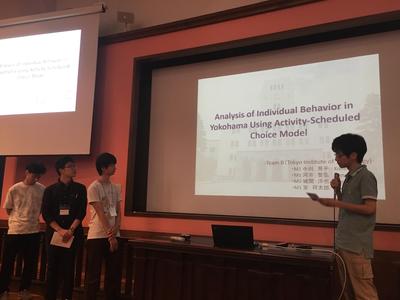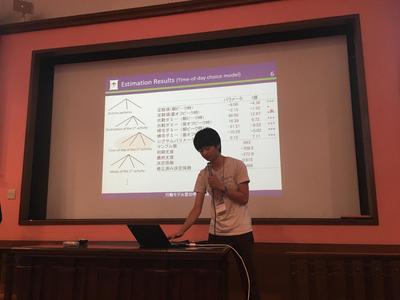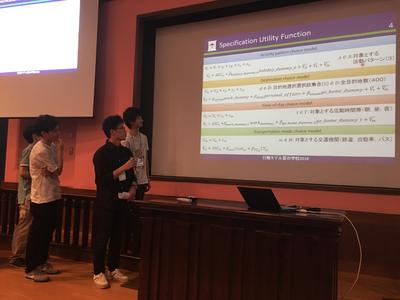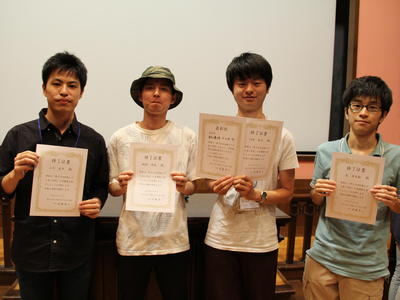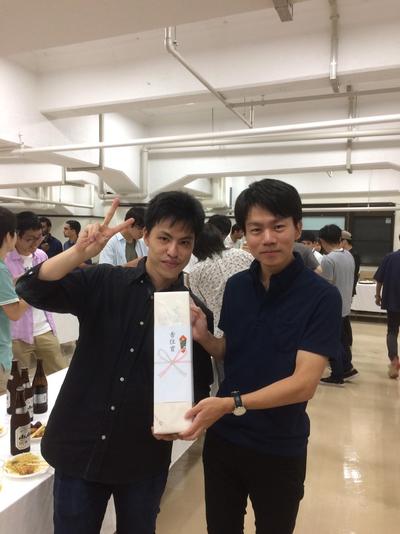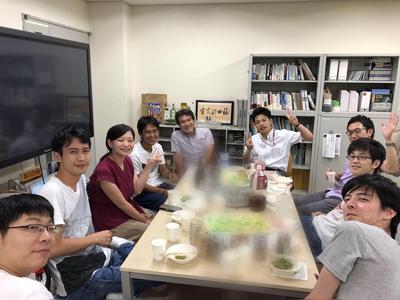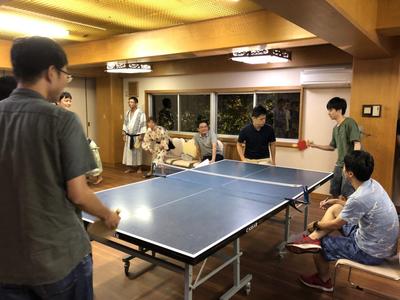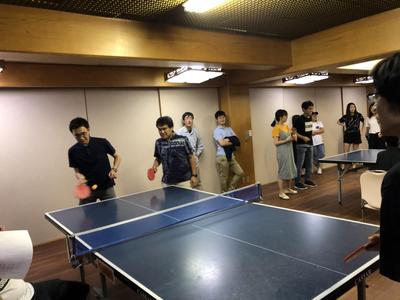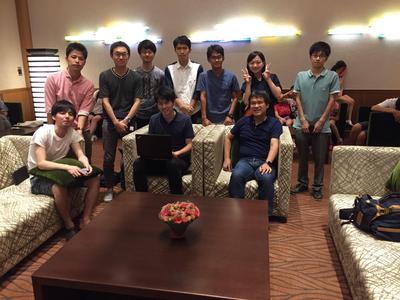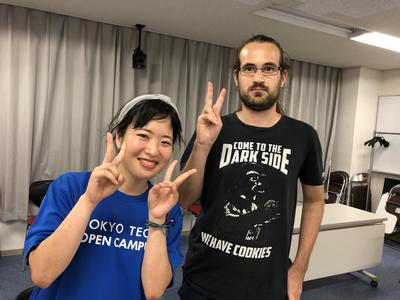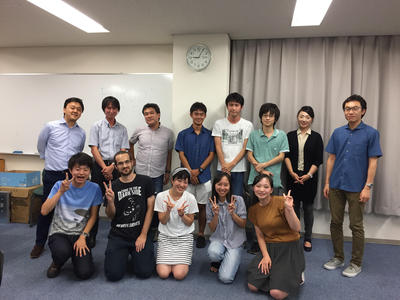Recent report from Iokura
We have received a recent report from Ms. Iokura (M1), who is currently studying abroad.
It has been a long time. My name is Ihoroi.
It has been about a month and a half since I came to study at KTH in Sweden.
The temperature here is only in the single digits during the daytime, and although it is winter in Japan, I still feel like it is still autumn. I can feel the days getting shorter day by day, and I am stretching my wings both physically and mentally in the slow nature of Northern Europe.
This semester I am mainly taking classes and it is almost the end of the semester. I am still getting used to discussions in English, but it is refreshing to hear opinions from international students of different nationalities with different backgrounds, and it is interesting to see the city and Japan from a completely different perspective than I have seen before.
It is a shock to me when something I took for granted crumbles with a bang.
In my personal life, I bought a recipe book of Swedish food, so I am addicted to cooking Swedish food myself, which is too expensive to eat out. But I can’t compete with Thai food, that’s my conclusion so far. With a strong immigrant culture, Swedes love Thai! I also discovered an unexpected connection between Thailand and Sweden.
I hope to serve you delicious Swedish food made by HIHOLOI when I return to Japan, so please look forward to it! (I hope you will all enjoy it!)
Fall 2018 Graduation Ceremony
[2018/09/20]
On 20th September, the graduation ceremony for Tokyo Institute of Technology in the fall semester was held. Mr. Azarel (M2) graduated from Fukuda Lab. He will continue his PhD studies in our lab. We look forward to working with him in the future!
The 1st lab seminar in the second semester
[2018/09/25]
In the first lab seminar of the second semester, Mr. Kobayashi (D1), who will be staying at the Fukuda Lab for the next six months, gave a presentation. He presented his research on train delays, including multi-agent simulations for delay countermeasures, which he has been doing at Shibaura Institute of Technology.
Welcome Party
Summer vacation is over and lab seminars have started again, and we held a welcome party for new members, Ms. Wang (M1) and Mr. Kobayashi (D1) from the Shibaura Institute of Technology!
We also celebrated Dr. Fukuda’s birthday with a small surprise. Happy birthday!
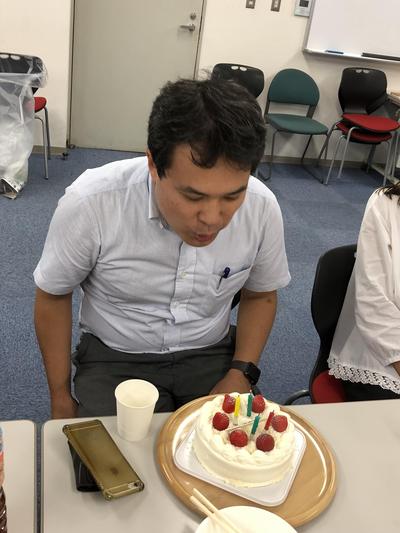
New members (September 2018)
Ms. Wang, an international student from China, has newly joined our lab as an M1 student! Also, Mr. Kobayashi, a D2 student from Iwakura Laboratory, Shibaura Institute of Technology, with whom we have been collaborating, will be working in our laboratory for the next six months. We look forward to working with him!
Behaviour Modelling Summer School 2018
(M1 students) Mr. Kawai, Mr. Ogawa, Mr. Muro and Mr. Shiroma participated in the Behaviour Modelling Summer School (@Univ. of Tokyo). We constructed an activity-based model that represents an individual’s all-day behavior. It was a Nested Logit model consisting of activity pattern selection, activity time selection (morning, noon, and evening), destination selection, and transportation mode selection. The team received high marks for building a large-scale model system with a total of 10 nests, and was ranked fourth overall (out of 17 teams). We would like to thank the Hato Laboratory of the University of Tokyo for serving as the organizer of the competition.
We also received the Kozumi Prize, which is awarded to the team with the best mathematical modeling. The prize was a bottle of locally brewed sake from Kozumi, Tottori Prefecture. Below is a photo of us with a team from Kobe University, which won the same prize.
TSU Summer Seminar Party
We had a launch party in our laboratory after the summer seminar was over!
We also gave Mr. Imaoka (M2), who celebrated his birthday last week, a gift of ‘aojiru’ (green juice)!
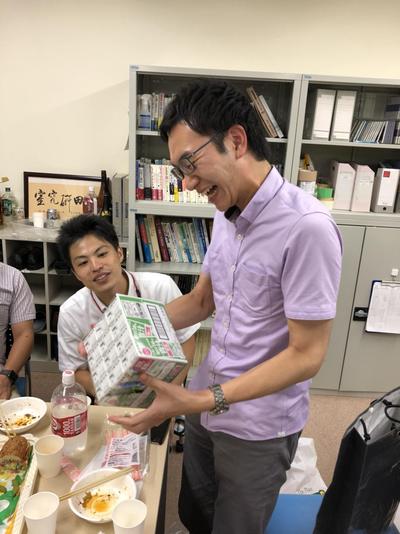
TSU Summer Seminar 2018
[2018/08/25~08/28]
TSU’s annual summer seminar, jointly organized by five TSU laboratories, was held at Sarugakyo Onsen in Minakami Town, Gunma Prefecture. This year, we had research presentations mainly by M2 students, lectures by professors, and interactive discussions. From our laboratory, (M2 students) Mr. Hirabayashi, Ms. Kaneko, Mr. Imaoka, Mr. Suzuki, and (M1 student) Ms. Salsabia presented their research. It was a valuable opportunity for us to listen to and discuss presentations by professors and students from other laboratories, and we believe that it provided a good stimulus for our future research activities.
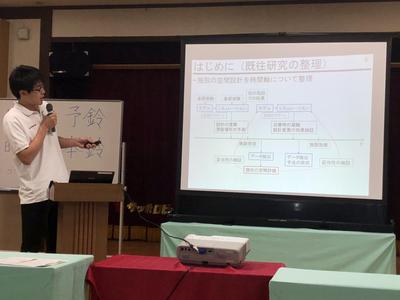
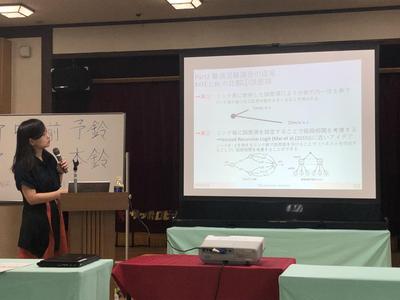
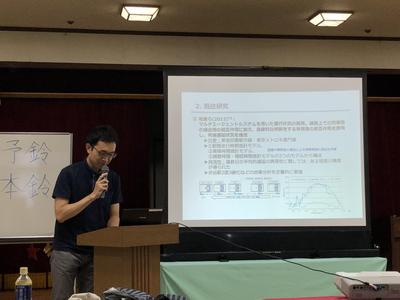
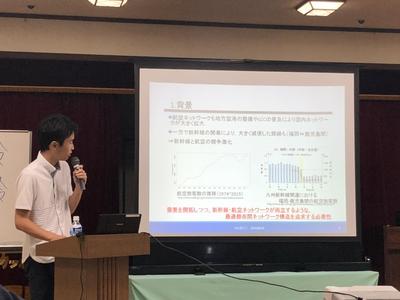
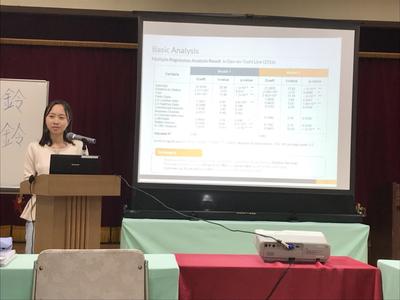 Also this year, Mr. Tanaka, a M2 student of University of the Ryukyus, is staying in Fukuda Laboratory and gave a presentation in the summer seminar.
Also this year, Mr. Tanaka, a M2 student of University of the Ryukyus, is staying in Fukuda Laboratory and gave a presentation in the summer seminar.
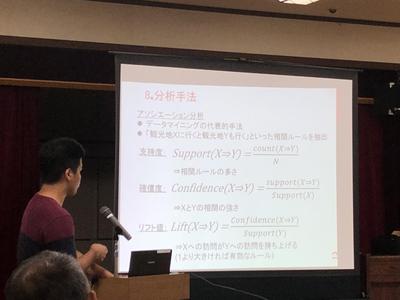 Furthermore, we had a table tennis match and BBQ as a recreational activity, which was a very meaningful camp.
Furthermore, we had a table tennis match and BBQ as a recreational activity, which was a very meaningful camp.
Lab party & Farewell party
As the first semester was over and the Bon Festival was just around the corner, we held a party to celebrate Mr. Azarel’s (M2) graduation from the Master’s Program and a farewell party for Ms. Iokura (M1) before her study abroad at the campus. Mr. Ishii, an alumnus of our lab, also came to the party!
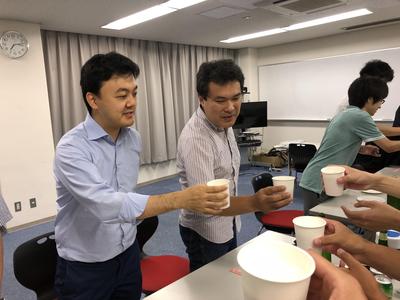
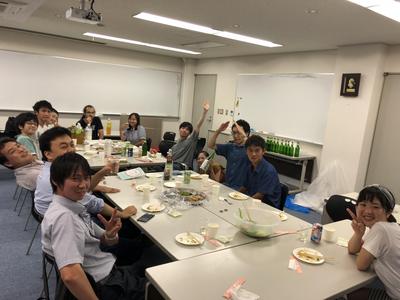
Mr. Azarel will continue his doctoral course in our laboratory, and Ms. Iokura will study abroad at the Royal Institute of Technology in Sweden (Kungliga Tekniska högskolan) for 10 months from the middle of August. We will miss you, but good luck with your research there!
Lab OB Party
[2018/07/21]
We held a reunion mainly for students who belonged to our laboratory from 2009 to 2014. Many alumni/alumnae attended the party and had a nostalgic time. It was a pleasure to hear their successes and experiences. We are looking forward to hearing more happy experiences when we hold the next meeting!
(Kaneko)

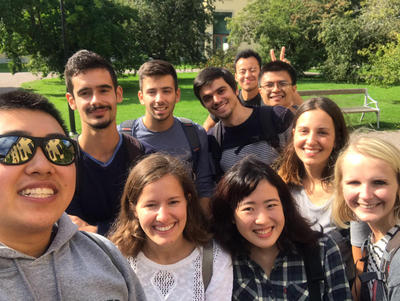
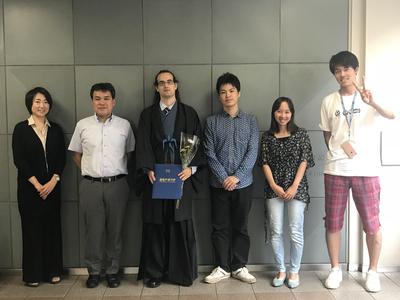
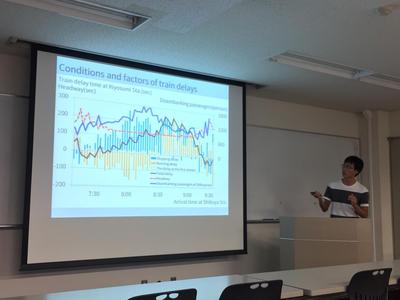
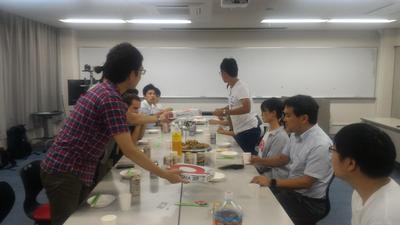
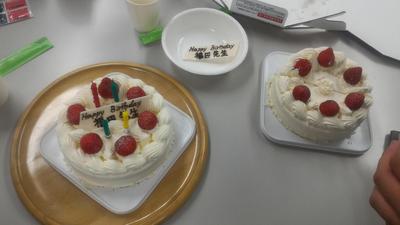
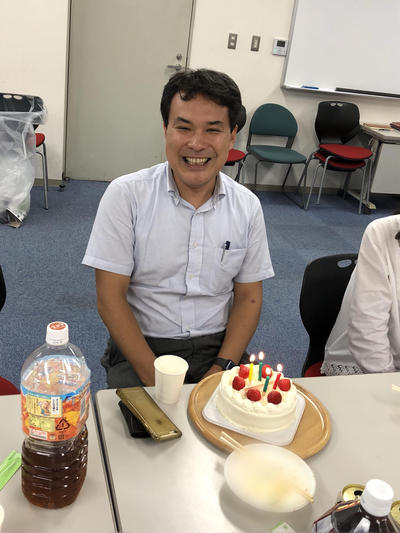
![IMG_2630[1].JPG](/assets_c/2018/09/IMG_2630%5B1%5D-thumb-400xauto-1000.jpg)
